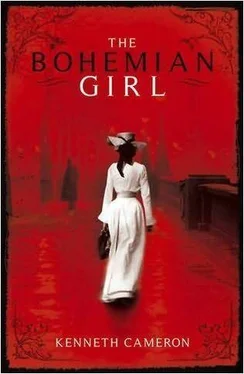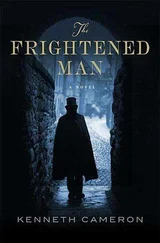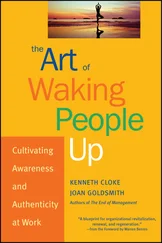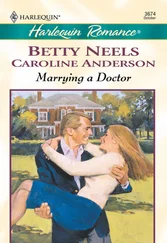Kenneth Cameron - The Bohemian Girl
Здесь есть возможность читать онлайн «Kenneth Cameron - The Bohemian Girl» весь текст электронной книги совершенно бесплатно (целиком полную версию без сокращений). В некоторых случаях можно слушать аудио, скачать через торрент в формате fb2 и присутствует краткое содержание. Год выпуска: 2010, Жанр: Детективная фантастика, на английском языке. Описание произведения, (предисловие) а так же отзывы посетителей доступны на портале библиотеки ЛибКат.
- Название:The Bohemian Girl
- Автор:
- Жанр:
- Год:2010
- ISBN:нет данных
- Рейтинг книги:5 / 5. Голосов: 1
-
Избранное:Добавить в избранное
- Отзывы:
-
Ваша оценка:
- 100
- 1
- 2
- 3
- 4
- 5
The Bohemian Girl: краткое содержание, описание и аннотация
Предлагаем к чтению аннотацию, описание, краткое содержание или предисловие (зависит от того, что написал сам автор книги «The Bohemian Girl»). Если вы не нашли необходимую информацию о книге — напишите в комментариях, мы постараемся отыскать её.
The Bohemian Girl — читать онлайн бесплатно полную книгу (весь текст) целиком
Ниже представлен текст книги, разбитый по страницам. Система сохранения места последней прочитанной страницы, позволяет с удобством читать онлайн бесплатно книгу «The Bohemian Girl», без необходимости каждый раз заново искать на чём Вы остановились. Поставьте закладку, и сможете в любой момент перейти на страницу, на которой закончили чтение.
Интервал:
Закладка:
Up past the little village of Strand-on-the-Green. He had been there — why? — of course, to visit the valet, Brown. He looked over his shoulder, searching out Brown’s house, which he remembered for its steep roof and bright blue trim. And, yes, there it was, a low concrete wall meant to keep the river out separating its back garden from the tidal mud, a flagpole flying the Union Jack; in the garden, flowers along each side, multi-coloured, pastel, the stuff of art. And as if called up by that idea, on the green of the little lawn, a woman in a white dress, sitting at an easel.
He came even with the house and went on, meaning to turn around at Kew, and he saw the woman only as a woman — white gown, straw hat, long hair — and then in an instant he saw everything, so startled that he caught a crab with his left oar and almost flipped the boat. Had she noticed? No; she was looking the other way.
He was rowing hard again, sweating, the sweat stinging his eyes. He turned almost too fast at Kew Bridge, backing with one oar, the gunwale coming within an inch of the water, and then he was pulling downriver again and moving to his right, bringing the boat in closer to the stairs that pierced the concrete dyke. He had picked out the high dormer of Brown’s house with its blue-trimmed window, the flagpole and the flag, and he kept his eyes on them until he was right at the shore and beached the boat at the foot of a flight of stairs. He got out clumsily, his bad leg trailing.
The mud was sticky and smelled bad. He grabbed the bow and pulled the boat up the gently sloping bank and tied it off in a ring set in the stone. For no other reason than vanity, he tossed the absurd little hat into the boat. He patted a pocket for the derringer and then remembered that it, too, was back at Hammersmith.
No matter.
Nothing mattered — only this: to climb these stairs, and cross this lawn and then the next and then to approach the woman who was painting at the easel in Brown’s back garden. He never took his eyes from her; she was looking partly upriver, must have seen him as part of her scene as he had rowed up. A bit of moving, anonymous colour.
He stepped over a clump of tall summer flowers and pulled his bad leg after and said, loud enough for her to hear, ‘Miss Mary Thomason, I think.’
Her head whirled.
‘Or is it Arthur Crum?’
She screamed and got up so fast the easel swayed and fell on the bright green grass. Lifting her white skirts, she ran, crying, ‘Ralph! Ralph, help me!’ Her yellow straw hat came off and drifted to the grass.
Denton cursed the leg and the bullet wounds. He moved as fast as he could, a man walking like a pair of compasses, huge strides, stiff. He could hear her screaming the name Ralph. She went through a doorway. The top half was mullioned glass; he could see her after she closed it, a terrified face, hands working frantically.
He didn’t try to be polite. His momentum carried him to within a few feet of the door, his weight coming on his right leg, which was clumsy but would carry it, and, as an extension of his long stride, he raised his good leg and kicked the door open and almost fell through it as his right leg lost its balance.
‘Ralph! Kill him — kill him-’
Through the door, he saw her within two yards of him and reached out. He was late in seeing motion to his right and behind him; too late, he turned, his right arm up, and caught an iron poker just above the elbow as it slammed down where his head was meant to be. The arm went dead, pain shooting to the shoulder. He saw the poker raised again. The face of Brown the valet was dark red, the eyes wide open with hatred. Denton forced himself in tight against the man and felt the poker swing behind him; he smashed his forehead into Brown’s face. Blood spurted. Denton had his left hand twisted into the man’s shirt then, pulling him close and using his head again to batter him, then kneeing him in the groin and hearing him howl. Denton swung him to his right and flung him into a wall. The valet collapsed down it to a sitting position. He put his hands in front of him.
Denton picked the poker up in his left hand. Brown’s eyes pleaded: No more . Denton hit him backhanded with the iron poker. The sound was like a hammer hitting a post.
The woman screamed. She turned and ran for a flight of stairs and up them. Denton followed as fast he could, reaching the bottom of the stairs only as a door slammed on the floor above. He started up, found it hard going without his stick, and he threw the poker aside and used a banister to pull himself up with his right hand. It was like rowing one-handed, the muscles bunching in his back, the blow on the upper arm aching.
At the top, a corridor ran the length of the small house, a door on each side. He saw but didn’t register the prettiness of it — rag rugs on the floor, watercolours on the walls, fresh flowers. His attention was on the closed door on his left. He tried the handle; it turned, but the door wouldn’t open. He pushed, felt a slight movement and heard the sound of scraping. She had pushed something against it from the other side.
He couldn’t kick this one open, and he couldn’t easily push it with his shoulder. Instead, he put his back against the door and turned the knob with his left hand. It was like pushing the sliding seat in the boat.
The door moved; the scraping sound grated. The opening widened — six inches, a foot, almost enough room for him to go through — and he saw her face, demonic, pale, and the razor that gleamed in an arc and missed his face as he recoiled but slashed down his left arm. He fell back into the hall, almost going down the stairs. The door slammed again.
Blood was running down his arm and dripping on the rag rug. The unconnected thought that she had made the rugs herself came into his mind. She had built herself a nest, he thought. He was tearing off the shirt of his silly outfit and wrapping it around his arm, then pulling it tight and holding the end with his left hand so it wouldn’t unwind.
He pushed the door again. It swung open and banged against the dresser that had been pushed against it. Holding his bleeding arm above his head, Denton nudged the door with his hip, alert for the razor, waiting for her to attack again.
The room was empty. Like the hall it was pretty. On the far wall above a double bed was the ‘little Wesselons’.
The dormer window was open.
He pushed the dresser out of the way and looked around the room for her, even bending and lifting the girlish flounce to look under the bed. She was clever enough to hide and let him think she’d gone out of the window, but she wasn’t in the room.
The dormer was high, six feet wide; the window was a tall double casement that swung from the middle post. Both leaves were open. If he went out of the wrong window, she might be able to come back in the other and escape him before he knew where she was.
He closed the door and pushed the dresser against it again to slow her if she came back in. His blood dripped on the floor and he raised the arm over his head again.
He went out of the right-hand window. When he looked down the pitch of the roof to the eave, vertigo staggered him. His old fear of heights. He closed his eyes, shook his head; then, not looking at the ground, he went out, left leg first, pulling the other after, peering around the corner of the dormer for her and pulling his head back in case the razor swung.
She was most of the way up the roof, heading for the peak. She was sitting, boosting herself up on her buttocks, keeping her feet and hands on the slates. She, too, was afraid of the height, he thought. When she saw him, she began to move faster. Above her and at the edge of the roof to her right was a chimney; she seemed to be making for it. Maybe there was a way down there; he didn’t think so, rather that she was going for the chimney because it was solid and seemed to offer support. If she could get down the other side of the roof, however, she could probably drop to the front garden; the house was higher at the back than the front because of the drop to the river.
Читать дальшеИнтервал:
Закладка:
Похожие книги на «The Bohemian Girl»
Представляем Вашему вниманию похожие книги на «The Bohemian Girl» списком для выбора. Мы отобрали схожую по названию и смыслу литературу в надежде предоставить читателям больше вариантов отыскать новые, интересные, ещё непрочитанные произведения.
Обсуждение, отзывы о книге «The Bohemian Girl» и просто собственные мнения читателей. Оставьте ваши комментарии, напишите, что Вы думаете о произведении, его смысле или главных героях. Укажите что конкретно понравилось, а что нет, и почему Вы так считаете.












